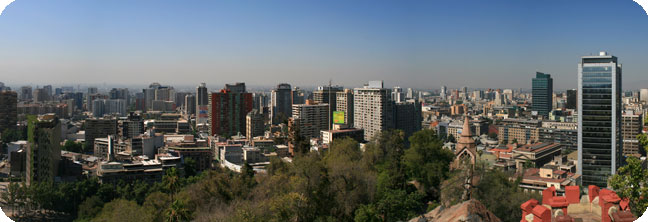Working Areas
Presentation conference: The Vision of the Human Being
This Conference will serve as the framework for the Symposium’s activities and describe the different visions of humanity that have sustained it throughout history to the present day. During each historical era, there has been a particular vision of humanity and its fate which guided the course of social events and the lives of individuals. Universalist Humanism offers a clear and distinct vision for today that is reflected in the foundation of the New Planetary Civilization that is now being born; a vision that establishes the human being as its central value and is based upon individual experience, rather than on idealism or materialism, society or God, and that sets out a path toward understanding the major themes of consciousness, the Profound, history and the future.
First block: Knowledge and its application
This will address: 1. Knowledge, Ethics and Aesthetics 2. Science and Technology.
Since man’s origin, he has tended to interpret the phenomena that he observed in his natural and social environment and in his own consciousness. Societies and Civilizations perfected their particular ways of understanding and continually extending their horizons as they developed.
Humans observed, named, and assigned a meaning to each element of the world that surrounded them, using their cultural heritage to adapt themselves to their environment and develop themselves within it. Human development has always been closely linked to its capacity to know and apply its knowledge.
From an ingenuous and magical perceptual perspective, to more abstract, critical and informed visions; from the horizontal plane underneath his own feet to the new terrain of nanotechnology, man appears to have advanced in his knowledge of the world and of himself. This progress has also been an expansion from the limits of the infinitely small to the unfathomable depths of sidereal space.
There is also a close relationship between knowledge and the ways of knowing; each path to knowledge reaches at its limits and exhausts its possibilities. That is exactly what is happening today. The current ways of knowing and, therefore, what is known, have reached an impasse.
If a new civilization is now to unfold, we will need a new way of knowing and giving meaning to things that will require a new conception of the human being.
For this new paradigm, Universalist Humanism recognizes the necessity of creating knowledge based on the immediate experience of the researcher instead of dogmatically accepted ideas or beliefs as humanity has done to the present day - knowledge based on the human being’s own experience.
As the basis of all knowledge and action, Universalist Humanism takes note of and acknowledges the structure consciousness-world. Neither of these terms can exist without the other. Working from this structure, we have:
a) an ethic based on the validity of internal experience rather than a conventional external morality; and
b) an aesthetic notion linked to the liberating experience of the human, as opposed to one influenced by market trends and the imposition of dominant media.
This leads us to demand that something more than mere economic benefit drives the development of science and technology; it is our priority that both are oriented to serve human development.

Second block: Social Organization and the Environment
This will address: 3. Rights, Law, Politics, and Economics 4. Education and Health. 5. The Environment
From the first groups formed by humans to complex modern societies, the human being’s vision of what should allowed and forbidden, and his concepts of rights and obligations have slowly changed, and has advanced from a system of rights for a select few to the proposal of the concept of universal rights.
In any case, the rights gained have been in direct proportion to the power and political capacity of the marginalized groups that have fought to enforce their rights and win their freedom. An unintentional cycle of progress and regression, driving forces and reactions, have led us to a mechanical repetition of history. It will be necessary to transform this historical repetition of indecent ownership by a few to the detriment of the vast majority by developing new rules of coexistence based on cooperation and repealing laws that oppress humanity.For even the processes by which rights and liberties have been gained thus far have not been immune to the economic interests that these groups held and placed above any social issue.
This means that rights, politics, and economics are all part of the basic structure of society and will have a determining role in defining what characteristics any new civilization will have.
At the same time, it is necessary to define the role that health and education will have in this future society, since both are essential for human development.Finally, there is also a necessity for a profound change in the way that man relates to his co-inhabitants of this planet: animal, vegetable, and mineral. It is not only necessary to thoroughly review existing systems of relationships, but also to transform our deeply-rooted concepts of domination of and competition with the natural world into more enlightened concepts of complementary partnerships. There is a fundamental need to develop a genuinely ecological environmental consciousness, in terms of a social environmental ecology that places human beings in constructive and co-evolving interrelation with the natural world and that definitively dispenses with the current approach of reckless and thoughtless consumption of natural resources.

Third block: The influence of historical and social intangibles in the formation of a society
This will address: 6. Culture 7. Spirituality
In every era and in every civilization there is a particular mental substrate that permeates the roots of the arts and sciences. This substrate underlies the structure of the epochal and cultural premises upon which that society’s whole "image of the world" is based and is where the deep models of societies are shaped.
In observing artefacts, works of art or architecture, ways of thinking, science, and social and religious beliefs, one can intuit a vision of the world that, although it goes unperceived, strongly conditions the entire scientific and artistic production of an epoch or a civilization.
In order to reach the substrate of society, it is necessary to address two elements: culture and spirituality.
If we say “culture”, we are not referring to folklore or to an accumulation of knowledge related to historical notions specific to a geographic area, but rather to a complex system of beliefs, social habits, relationships, and lifestyles of a people or a group of peoples. Therefore culture, broadly speaking, constitutes the foundation that gives direction to human actions and glimpses into a society’s future. If a society has based its culture on violence, for example, it would not be difficult, by reviewing the accumulated historical evidence, to glimpse its destiny. On the other hand, if a culture of nonviolence were to be established today and maintained going forward, it would be possible to completely rethink this society’s inherent structures: non-violence as a profound attitude, and as a way of thinking and of viewing the world.
Moreover, the great theme of spirituality, always present in the human history, is unavoidable, as it continues to be expressed in various forms in all societies. We are not thinking exclusively about spirituality as expressed by institutional and recognized religions, but also of a diffuse “currents” expressed in new aspirations and a new way treating oneself and other; a spirituality based on an internal and deep experience of the Sacred, rather than one based in external, liturgical worship.
The image of the world upon which the new planetary civilization will be built, will indeed be a synthesis of the most progressive elements of each and every one of the different civilizations currently on the planet.
Moreover, we believe it is essential, in this difficult phase of history, to highlight the theme of non-violence in the sphere of culture, and to draw from the deep reserves of human spirituality, making them essential elements in the foundation of the Universal Human Nation, that can now be seen on the horizon.








